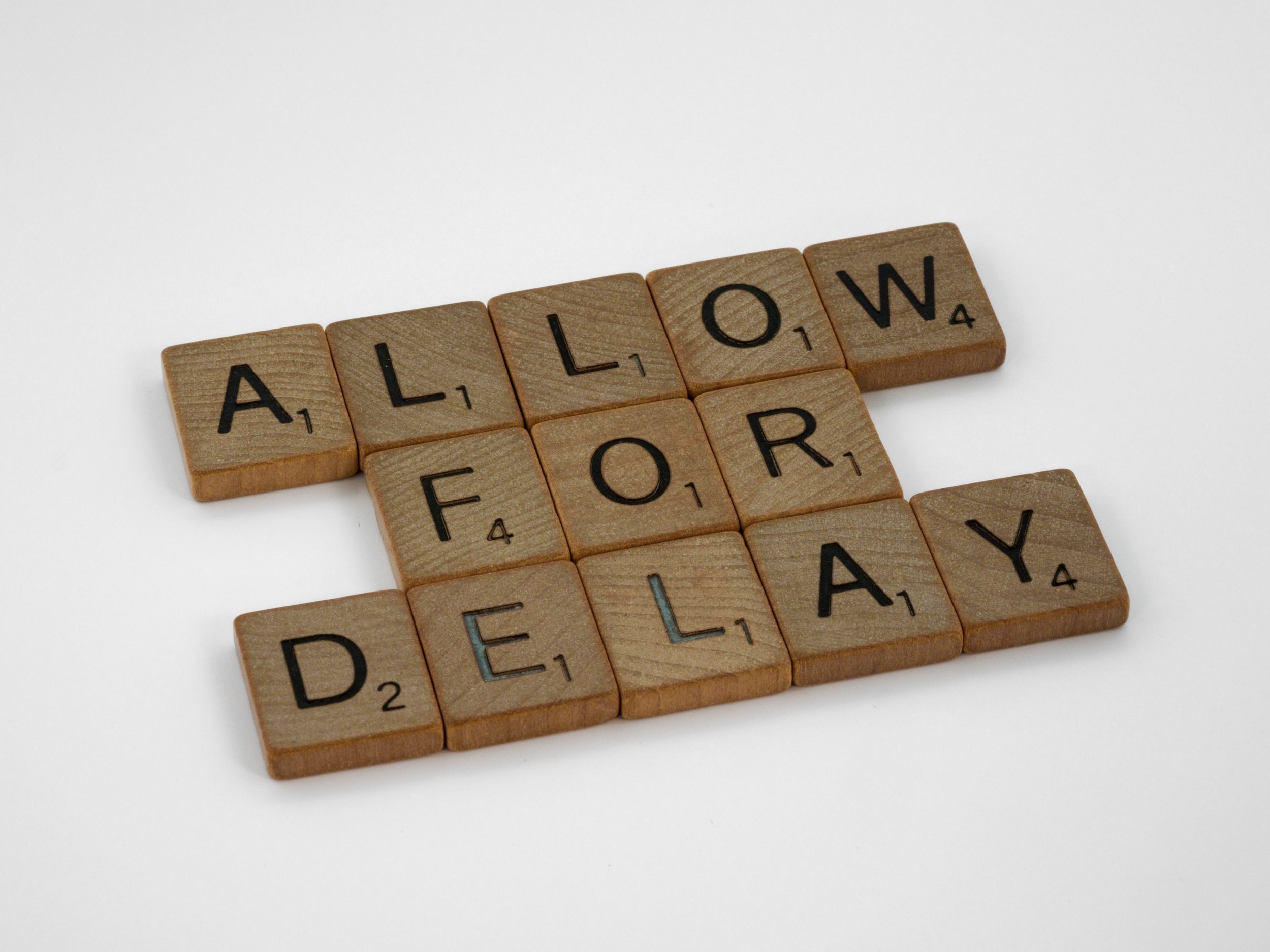Why immediate gratification doesn't always lead to success
We live in a world where we are continuously inundated with messages telling us that we need to have what we want, and we need to have it now.

We live in a world where we are continuously inundated with messages telling us that we need to have what we want, and we need to have it now.
We're told that if we don't get what we want right away, we'll never get it. This message is everywhere, from advertisements to social media. And it's not just restricted to material things—we're also told that we need to be successful, happy, and perfect immediately.
But is this really true? Does immediate gratification always lead to success? Let's take a look at why immediate gratification doesn't always lead to the best results.
The dopamine hit we get from instant gratification is addictive and can lead to bad decisions
The dopamine hit we get from instant gratification is addictive and can lead to bad decisions.
When we get a hit of dopamine, it feels good, REALLY good, so good that we want to keep feeling that way over and over again. The problem is, the more we chase that dopamine high, the harder it becomes to feel satisfied.
We start to need more and more of the hit just to feel normal. And as our tolerance increases, we begin to take bigger and bigger risks to get our fix. That's how addiction works. And that's why instant gratification can be so dangerous.
It's not just that it leads us astray from our long-term goals; it literally changes the way our brain functions, making us less likely to make rational decisions.
So next time you're tempted to go for the quick and easy fix, remember: it may feel good in the moment, but in the long run, it could be doing some serious damage.
Successful people are usually patient and willing to work hard in exchange for long-term rewards.
Anyone who has ever achieved anything significant will tell you that patience and hard work are essential ingredients for success. While there may be the occasional overnight success story, the vast majority of people who achieve greatness do so after years of patient effort.
This is because real success takes time. It takes time to learn new skills, to develop meaningful relationships, and to build up a track record of achievement. Those who are willing to put in the hard work and wait for long-term rewards are usually the ones who end up being successful.
Impatience, on the other hand, leads to shortcuts and half-measures, which rarely lead to lasting success.
So if you're serious about achieving your goals, remember to be patient and be willing to put in the hard work. It may not happen right away, but it will eventually pay off.

Quitting once you've started is one of the biggest causes of failure
When it comes to freelance graphic design, one of the most common causes of failure is quitting after you've begun. Many creatives make the mistake of giving up too soon before they've even seen any success.
This is due in part to the fact that freelance work can be unpredictable and sporadic, making it easy to become discouraged if you don't see immediate results. However, it is also because starting your own business can be intimidating, especially if you are not used to taking risks.
Remember that being a freelancer is a long process, not a quick one. This is the most important thing to keep in mind. Building a successful freelance career takes time and patience, so don't give up too soon. Continue to work hard and stay focused on your goals, and you will eventually see results.
The benefits of freelance work can be enormous, but they do not appear overnight. It's critical to stay focused on your long-term goals and remember that success will not come in a matter of days or weeks. As a freelance graphic designer, you can achieve great things if you have the right attitude and commitment!

Learning to delay gratification is one of the most important skills you can learn
Learning to delay gratification is one of the most important skills you can learn. It's the ability to resist the temptation of an immediate reward in favour of a larger, more satisfying goal. It's the cornerstone of success in almost every area of life, from personal relationships to careers.
Delaying gratification requires self-control and discipline, two traits that are essential for achieving any major goal. When you're able to delay gratification, you're able to stay focused on your goals and pursue them with single-minded determination. You're also much less likely to make impulsive decisions that can sabotage your efforts.
So if you want to achieve anything worthwhile in life, learn to delay gratification. It may not be easy, but it's definitely worth it.
There are many benefits to delaying gratification, including improved focus, motivation, and self-discipline
When it comes to achieving your goals, it pays to be patient. That's because delaying gratification can have many benefits, including improved focus, motivation, and self-discipline. As a freelance graphic designer, this is an invaluable trait that can help you succeed.
Think about it: Freelance graphic design requires a great deal of creativity and often involves working on multiple projects at once. It can be tempting to take the easy route and focus all your energy on the most immediate tasks. But when you do that, you're missing out on long-term opportunities—opportunities that could potentially lead to bigger and better things down the road.
By taking time to invest in yourself and your skills, investing in relationships with potential clients, researching markets, and learning new techniques or software, you are increasing your value as a creative professional. This will pay off in the long run by helping you achieve greater success with future projects.

The dangers of immediate gratification
In our fast-paced, consumer-oriented society, it's easy to fall into the trap of seeking immediate gratification. We know what we want and when we want it now. Unfortunately, this way of thinking can lead to a number of problems.
For one thing, it can cause us to make impulsive decisions that we later regret. It can also lead to financial problems, as we charge purchases on credit cards or take out loans to pay for things that we really can't afford.
And on a larger scale, it can contribute to environmental problems as we mine and drill for natural resources without thought for the future. The next time you're tempted to go for the quick fix, take a step back and think about the long-term consequences. You'll probably be glad you did.
How to break the habit of seeking instant gratification
The modern world seems to be built on the principle of instant gratification. Whether it's the 24/7 availability of entertainment and news, the expectation of immediate responses to text messages and emails, or the ability to order anything we want with the click of a button, we've become accustomed to getting what we want, when we want it.
However, this constant quest for instant gratification can lead to several problems. For one thing, it can make us feel anxious and impatient when we don't get what we want right away.
If you're looking to break the habit of seeking instant gratification, there are a few things you can do.
First, try to become more aware of when you're doing it. This will help you catch yourself in the act and make a conscious decision to change your behaviour.
Second, take some time to consider what you truly want. This will help you resist the urge to go for the quick fix and instead focus on something that will give you lasting satisfaction.
Finally, practice patience and self-control. Instant gratification may be the norm these days, but that doesn't mean it's good for us. Learning to delay gratification can help us to lead happier, more fulfilling lives.
The benefits of delaying gratification
The ability to delay gratification is an important life skill that can lead to success in many areas of life. This is especially true for freelance graphic designers and other creatives who are looking to make their mark in their respective industries.
When you choose to delay gratification, you're essentially choosing to focus on the long-term benefits of your work rather than the immediate reward. This could mean that instead of taking a job today for quick cash, you opt to create something that will have more value over time, such as creating an original portfolio piece or learning a new skill.
When you choose to delay gratification, you're also more likely to avoid making decisions driven by fear. When freelance graphic designers are tempted to take quick jobs just because they offer a ready paycheque, they may be sacrificing their creativity and the potential for long-term success.
The ability to delay gratification is also beneficial for freelance graphic designers because it allows them to focus on creating excellent work. Instead of rushing through a project due to an immediate need for cash, freelance graphic designers can take their time and create something that will have lasting value in the industry.
Finally, when freelance graphic designers choose to delay gratification, they often open themselves up to new opportunities. By taking the time to develop relationships with other creatives or explore different areas of graphic design, freelance graphic designers can gain valuable experience and create better work.
At the end of the day, when freelance graphic designers choose to delay gratification, they give themselves a much better chance at success in their field. Taking the long view and developing skills over time can lead to more fulfilling projects and a stronger reputation for freelance graphic designers.
So next time you're tempted by immediate gratification, take a step back and think about how it might impact your long-term goals as a freelance graphic designer!

How to develop a long-term mindset
To be successful in any field, you must have a long-term mindset. Instead of getting caught up in the day-to-day grind, it allows you to take a step back and consider the big picture.
To begin developing a long-term mindset, set long-term goals. Consider your long-term goals for the next five, ten, or twenty years. Working backwards from a clear vision for the future, develop a strategy for getting there.
For example, if you're a freelance graphic designer, you may want to establish yourself as an industry leader within the next five years. To do so, you must concentrate on expanding your portfolio and learning new skills. Quick wins with little effort will not suffice. Instead, be ready to put in the time and effort required to become an expert in your field.
It is difficult to cultivate a long-term mindset, but it is essential for creatives who want to be successful. Avoid the temptation of instant gratification in favour of developing skills that will lead to future success.
Take the time to map out your career path and set goals that will help you achieve your vision. You can build a satisfying career as a freelance graphic designer with hard work and dedication.
You're setting yourself up for long-term success as a creative by taking the time to plan your future. Don't be swayed by the desire for instant gratification—develop a long-term mindset and the rewards will follow.
Tips for achieving success in the long run
If you're looking to achieve success in the long run, there are a few things you should keep in mind. First and foremost, it's important to be passionate about what you're doing. If you're not genuinely interested in your work, it will be very difficult to maintain motivation over the long haul.
Second, as mentioned above, it's important to set achievable goals and break them down into smaller steps. Trying to accomplish too much at once is a surefire recipe for frustration and burnout.
Finally, it's essential to build a support network of friends, family, and colleagues who will encourage and inspire you. Surrounding yourself with positive people will help keep you focused on your goals, even when things get tough.
By following these simple tips, you'll be well on your way to achieving success in the long run.
It can be hard to break the habit of seeking instant gratification, but it is worth it in the long run. Developing a long-term mindset takes time and effort, but it is worth it for your success both professionally and personally.
Follow these tips to achieve success in the long run and break free from the chains of instant gratification.



